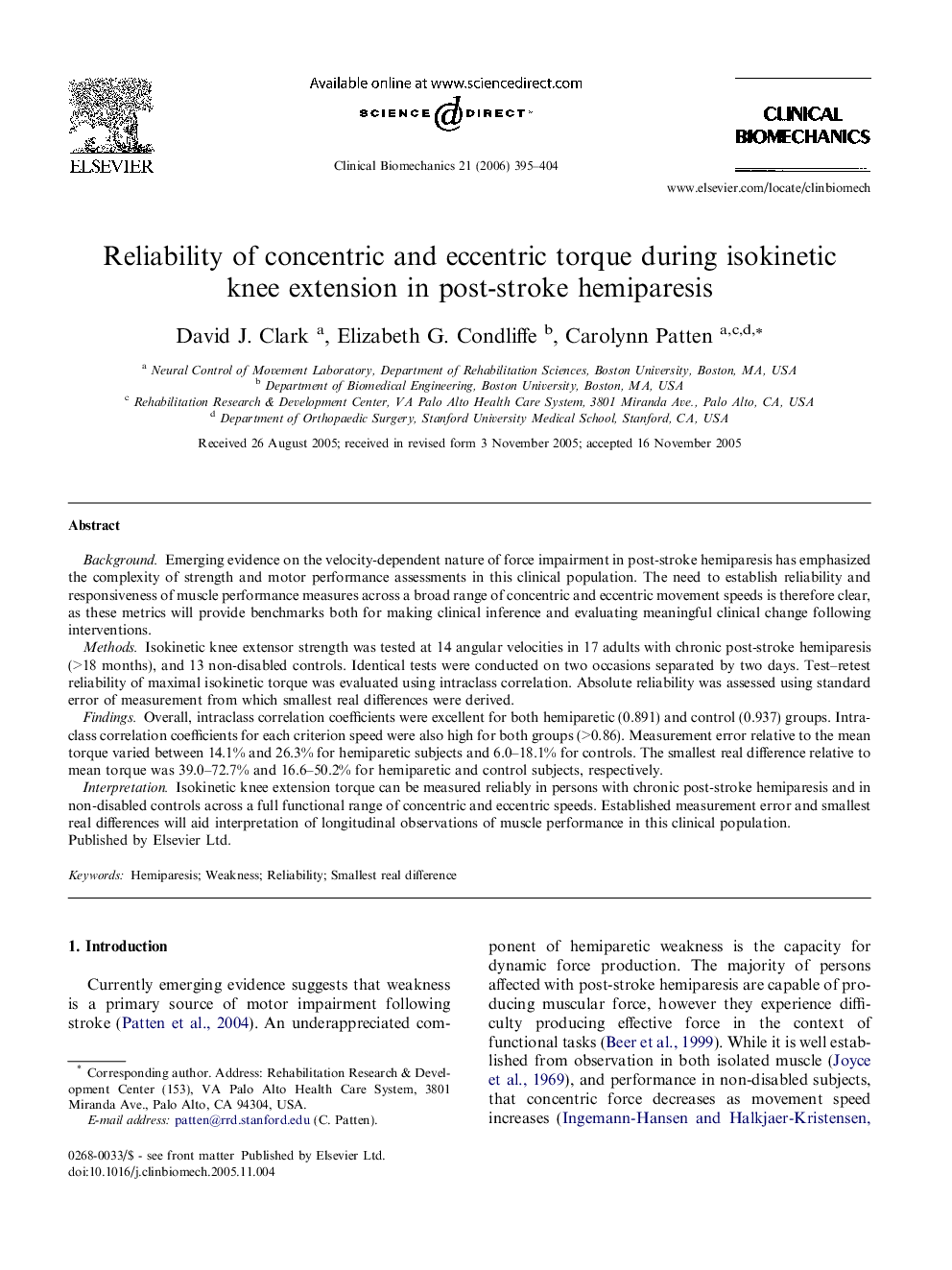| Article ID | Journal | Published Year | Pages | File Type |
|---|---|---|---|---|
| 4051605 | Clinical Biomechanics | 2006 | 10 Pages |
BackgroundEmerging evidence on the velocity-dependent nature of force impairment in post-stroke hemiparesis has emphasized the complexity of strength and motor performance assessments in this clinical population. The need to establish reliability and responsiveness of muscle performance measures across a broad range of concentric and eccentric movement speeds is therefore clear, as these metrics will provide benchmarks both for making clinical inference and evaluating meaningful clinical change following interventions.MethodsIsokinetic knee extensor strength was tested at 14 angular velocities in 17 adults with chronic post-stroke hemiparesis (>18 months), and 13 non-disabled controls. Identical tests were conducted on two occasions separated by two days. Test–retest reliability of maximal isokinetic torque was evaluated using intraclass correlation. Absolute reliability was assessed using standard error of measurement from which smallest real differences were derived.FindingsOverall, intraclass correlation coefficients were excellent for both hemiparetic (0.891) and control (0.937) groups. Intraclass correlation coefficients for each criterion speed were also high for both groups (>0.86). Measurement error relative to the mean torque varied between 14.1% and 26.3% for hemiparetic subjects and 6.0–18.1% for controls. The smallest real difference relative to mean torque was 39.0–72.7% and 16.6–50.2% for hemiparetic and control subjects, respectively.InterpretationIsokinetic knee extension torque can be measured reliably in persons with chronic post-stroke hemiparesis and in non-disabled controls across a full functional range of concentric and eccentric speeds. Established measurement error and smallest real differences will aid interpretation of longitudinal observations of muscle performance in this clinical population.
